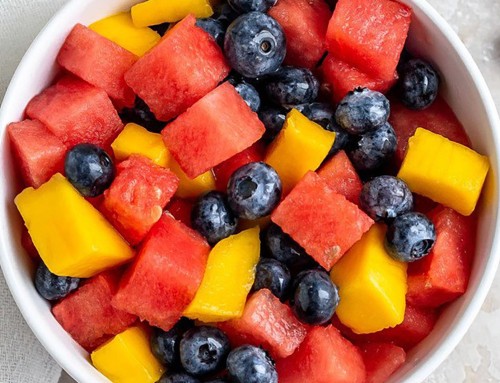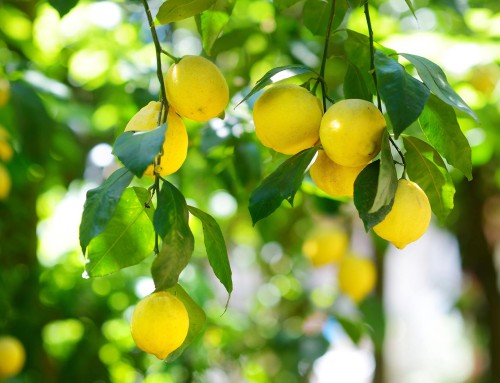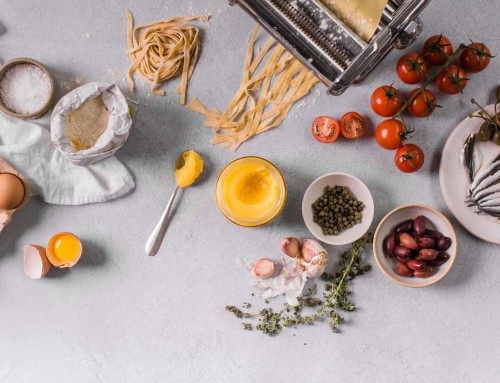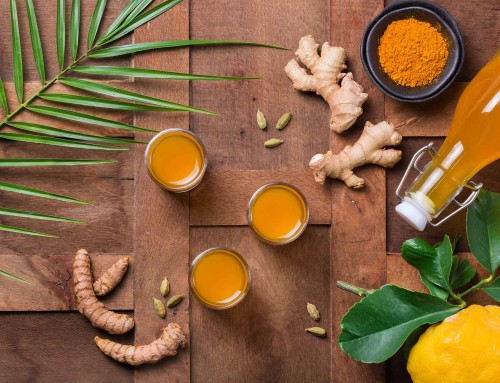Autumn Recipe & Eating Tips
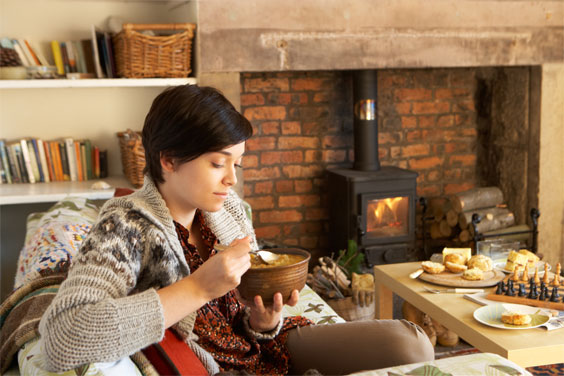
As the days settle into Autumn do you wonder what to cook that will be both tasty while also helping you to stay in balance?
I pondered his question while thinking about how I could best help you to enjoy greater balance this Autumn.
The answer was to provide you with the tasty Butternut Dhal Curry recipe below, along with some understanding of how to navigate the seasonal changes for optimal nourishment this Autumn.
Ayurvedic Wisdom
Ayurvedic wisdom explains that our bodies are made up of five great elements (Maha Bhutas) – space, air, fire, water and earth. These five elements combine to form the three doshas – Vata, Pitta and Kapha. Each of the doshas have specific functions while at the same time regulating thousands of separate functions in the mind and body. Nature requires all three doshas to build and maintain a human body.
Vata
Vata controls movement or motion to guide breathing, blood circulation, passing of food through the digestive tract and the sending and receiving of nerve impulses from the brain. Vata is most dominant during Autumn and Winter.
Pitta
Pitta controls metabolism to process food, air, water, thoughts and feelings throughout the body. Pitta is most dominant during Summer.
Kapha
Kapha controls structure to hold cells and matter together to form muscle, fat, bone and sinew. Kapha is most dominant during Spring.
During Autumn & Winter
During Autumn and Winter Vata dosha is most active. Vata is the moving, quickly changing dosha and it adapts quickly to positive changes in diet. People notice that their energy level is steadier and eating Vata settling foods helps them to feel more calm, settled and happy.
As Vata dosha can give erratic digestion, well-cooked foods are best for Vata dosha such as hearty stews and dhal, soups, pastas, slow cooked casseroles, fresh-baked bread and fruit pies.
Does that sound tasty and inviting to you?
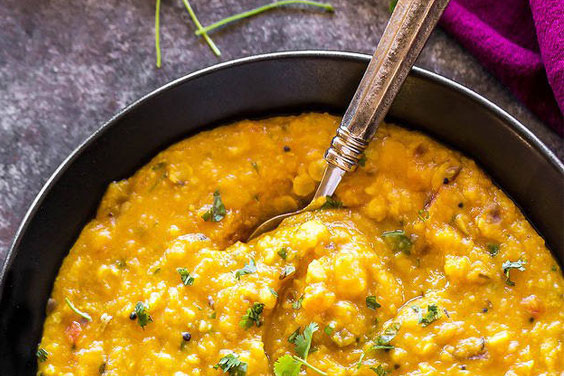
Butternut Dhal Curry
This tasty curry can be taken at lunch or evening meal.
Aim to have your largest meal of the day at lunchtime.
Aim to eat lunch between 12-1pm and your evening meal by 7pm.
Ingredients:
- 2 Cups cubed butternut
- 1/4 tsp rock salt
- 1/2 tsp turmeric
- 1 Cup boiling water
- 1 Tbsp oil or Ghee
- 1 Tbsp split urad dhal, without skins
- 1/2 tsp black mustard seeds
- 1/4 Cup freshly grated coconut or 1/8th C of desiccated coconut
- 1/4 Cup quinoa
- ¼ Cup rice
- Pinch of rock salt
- 1/2 Tbsp cumin seeds
- ¼ tsp of turmeric
Time needed: 30 minutes.
Directions:
- Add butternut, salt and turmeric to boiling water. Cover and simmer for 10 minutes. Then drain the squash.
- In a large skillet heat oil or ghee and lightly roast urad dhal and mustard seeds until the seeds begin to pop.
- Add coconut and sauté for a few minutes, then add squash and simmer for 2 minutes.
- Wash the quinoa until the water runs clear. Then add quinoa, rice, salt and 2 C of water to a pot and bring to a boil; then simmer, covered for 15 minutes, adding more water as needed.
- While the quinoa and rice are cooking dry roast the cumin and turmeric in a small pan for 2 minutes; add to the quinoa/rice mixture when it has finished cooking, stirring to combine.
- Serve the dhal on top of the quinoa/rice mixture with 1.5 cups of cooked Vata settling vegetables such as carrots, kumara, spinach and green beans.
Use the Ayurvedic way to assess the right portion size for you. Take as your first portion the amount that would fill your two hands cupped.
Sit and eat with full attention. Chew well, sip small amounts of warm water if desired, and sit for 5 minutes following the meal. Then take a 10-15-minute walk to aid digestion.
Take Digest Plus (MA154) about 15-30 minutes after your main meals.
Digest Plus (MA154) helps to balance appetite, stomach acid, reduces gas and supports liver and pancreatic function. It is particularly helpful during Vata Season.
Take Organic Triphala (MA505) 1-2 tablets prior your evening meal to reduce the build-up of impurities from your evening meal. If you have a bowel motion less than 1-2 times a day also take 1-2 tablets at bedtime.

Eating Tips for Vata Season
Use spice to warm up digestion – ginger, cinnamon, fennel and cardamom. An instant way to settle Vata is to sprinkle Vata Aromatic Seasoning over your plate at the table or use in the cooking process.
Favour warm, moist, soothing foods such as warm milk, cream, butter, warm soups and long-cooked stews, hot cereals and fresh-baked bread as they will soothe you best.
When feeling nervous, worried or anxious a bowl of hot oatmeal, or cup of creamed vegetable soup will help you feel much better than a sugar rich drink or chocolate bar.
Drink plenty of warm or hot liquids such as Vata Tea and avoid ice-cold and carbonated drinks which aggravate Vata.
Drink Lassi, a traditional Indian drink to help rid the body of excess Vata at lunch time.
A cooked cereal that is warm, milky and sweet is most settling at breakfast time.
Stop at 12 midday to have your main meal of the day when your digestion is strongest.
For an energy boost mid-afternoon (3-4pm) have a cup of Vata Tea and a date slice or biscuit.
At dinner have hot soup instead of salad, bread and butter and a warm dessert such as apple sponge, date pudding or apple pie. Or have a hot breakfast cereal again.
Avoid eating late at night as your body will feel worse in the morning.
A drink of warm milk with cardamom, ginger, nutmeg and a little raw sugar is tasty and helpful prior bed during Vata Season.
Wishing you the bliss of balance
Linda Sinden, Maharishi AyurVeda Consultant
Linda Sinden has been a practising Maharishi Ayurveda Consultant since 1990 and is a regular contributor to our health articles. She has a practice in Auckland, New Zealand and also provides phone or Skype sessions for those who need assistance, but don’t have a consultant in their vicinity.
Email: lindasinden@orbislife.co.nz
Mobile: +64 212237525
Skype: Linda.Sinden


